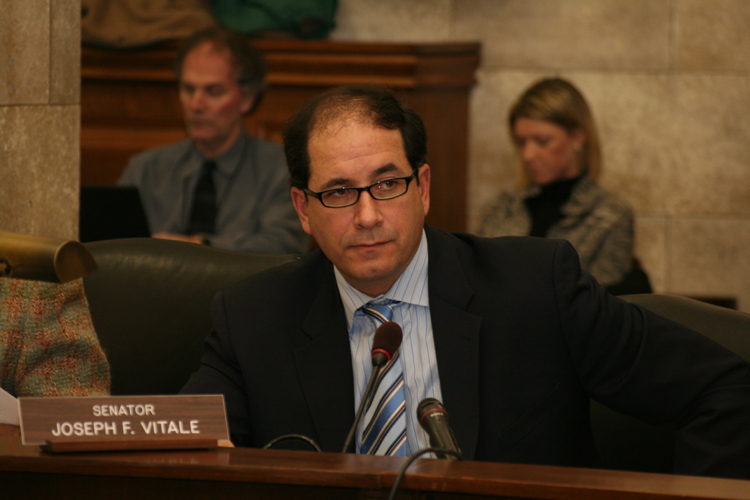
TRENTON – State Senator Joseph F. Vitale, D-Middlesex, the Chair of the Senate Health, Human Services and Senior Citizens Committee and a member of the Senate Budget and Appropriations Committee, issued the following statement regarding Governor Corzine’s FY 2009 Budget Address:
“Governor Corzine articulately laid out the many economic problems facing the State of New Jersey. Obviously, State government has to be leaner, smarter and more efficient, and there are ways to go about cutting bloated government without harming the people we serve.
“While the Governor offered some necessary, if not painful, cuts to the way we spend State tax dollars, we have to move very carefully when it comes to how we appropriate health care dollars. In particular, the State has an ongoing responsibility to deal with the uninsured in New Jersey, and even in lean economic times, we need to make good by that responsibility.
“For too long, New Jersey has relied on charity care health services at our State hospitals as the primary response to health care for those without health insurance. Charity care has been a band-aid on a much deeper wound, and every year, the problem gets worse and worse. Without a paradigm shift in how we fund our health care obligations to the uninsured, health care costs will continue to soar, and we will not be able to make any headway in protecting those in need.
“Charity care only treats immediate health care needs at a higher cost to State coffers and the long-term health of recipients. However, an honest reckoning on the issue of health care for the uninsured will save money and fix a system which has been dysfunctional at best, and continues to spin out of control. The un-reimbursed costs of charity care on State hospitals is the main reason our hospitals are in crisis. And moving to a model of rational health care, as opposed to episodic care, will mean more efficient use of our health care dollars, and better results for those in need.
“If nothing else, our current tough economic times offer a chance to be realistic about the needs of the State, and how we can move forward with the goals of government in a far more efficient manner. I hope that the wasteful, inefficient spending embodied in the charity care system for the uninsured can be replaced with a far more rational, efficient system which offers meaningful results for the uninsured in the Garden State.”

